WWDC20 has ended Fun for Apple fans and technology in general. With his end, a new horizon of development and renewal began in the world of desktop and mobile computers. Finally a revamp in a product that hasn't been significantly refreshed for years and years. Of course the last big update was Apple's move from PowerPC to Intel processors. And here is Apple again announcing the move, but for its own processors this time.
What do we gain? What are the consequences of that? Let's find out together.
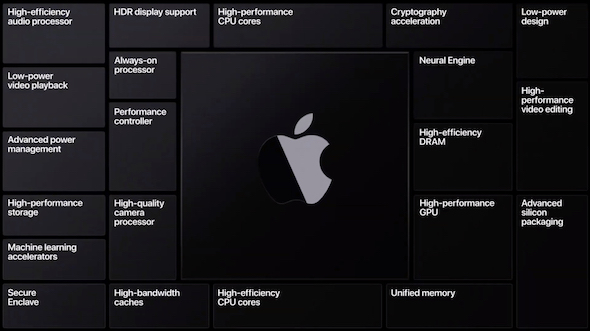
what's new?
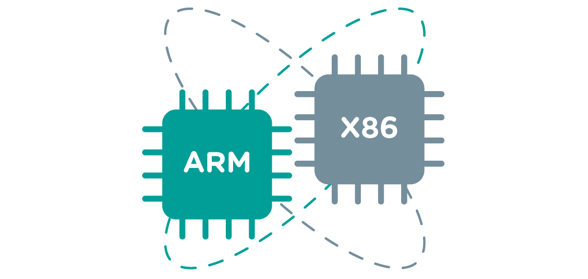
Apple decided to gradually abandon Intel processors (over a period of two years) in exchange for making its own processors for all Macs. This is not just a simple change, as Apple's processors rely on a completely different architecture from those of Intel. The applications we all use now are built on the Mac for Intel processors. To learn more about the engineering difference between Intel and Apple processors and the difficulties that faced this change before, you can visit our article about it through -this link-.
Impressive performance. With games, photoshop, and xdr screen.
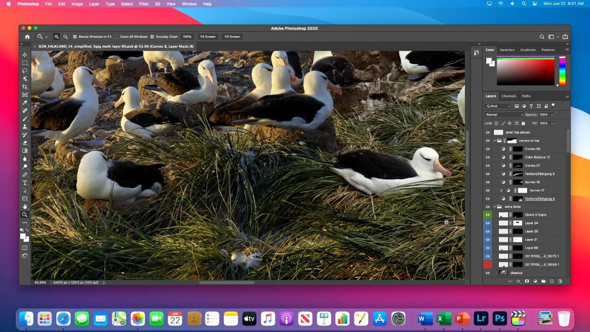
I was eager to see what Apple would do with the new processors. That was what I was most waiting for the conference this year. But the surprise came as a thunderbolt.
Apple made all the experiments at the conference using the A12Z processor for the iPad Pro 2020 placed in the Mac Pro. IPad Wizard!
To my amazement, the processor performed the device excellently. He was able to manage many applications together, he was able to manage the contents of the 16 GB RAM smoothly, the processor was able to do many impressive things such as running Photoshop and the Mac version of the Tomb Raider game smoothly. The MacBook Pro that I use to write these words cannot work.
The processor is also capable of running Apple's professional 6K XDR display. Note that many Intel processors in laptops cannot operate this screen.
What's so surprising?
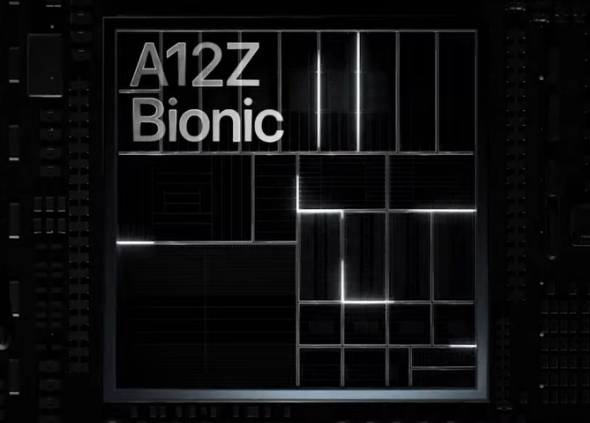
The surprise here is that the A12Z processor is designed to run on an iPad that is very thin and devoid of any fans. Therefore, it should be small in size and its speed should also be restricted to some extent in order not to overheat and burn the device. But this same design proved an impressive Mac capability.
This takes us to the most exciting point, if this is what the iPad mini processor can do, then how will the processors that Apple specifically design for the MacBook perform? MacBook Pro? Even an iMac? All of these devices have a very large area, which means greater ability to withstand heat and also the possibility of doubling the size of the processor times and thus doubling the performance many times.
The possibilities are endless.
Our expectation here is that Apple will release a MacBook that is completely free of fans so that it is silent like the iPad, and Pro devices have fans to deliver much higher performance.
Full control over the experience
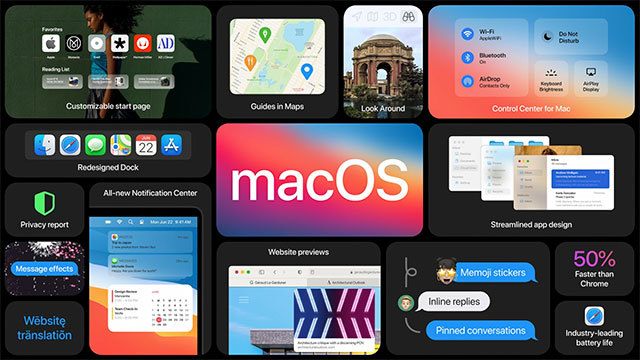
Apple has struggled for years from Intel processors. Intel is very slow in updating and it has caused Mac hardware delays several times. The increase in performance is also slight annually and does not amount to Apple's updates which usually give a much greater increase in speed.
Apple can also now make new features, especially the Mac, that it could not do before with its control over the production line. Also, the Apple processor architecture will allow the use of iPad applications directly on the Mac without the need for major modification or even re-purchase, so you use the program that you previously purchased without paying additional amounts for the Mac version.
It is also expected that the performance of new applications dedicated to the new chip will be more than wonderful and smooth, as is happening now in the iPad. Because the applications will be specially designed with Apple's design systems for Apple's own processor.
the battery
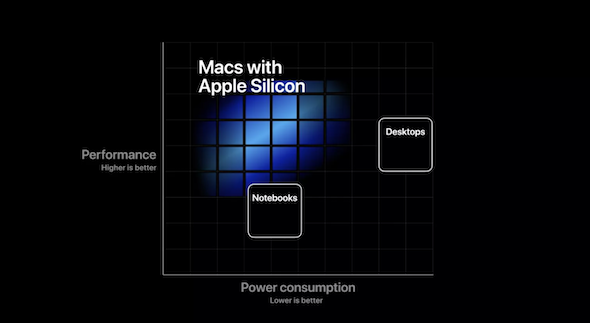
Are you a fan of batteries that never run out quickly? I'm sure about that. Now, with Apple's new ARM architecture, known for its extreme energy efficiency, MacBook batteries can last up to hours more than current devices. I would not be surprised if Apple announced that the MacBook will live 18 or 10 hours after a single charge instead of 11-XNUMX hours now.
Saving in price

Apple is now buying Intel chipsets of course. And they are expensive. Especially as Apple requests modified versions of its own. The price of an Intel processor for Apple devices usually ranges between $ 200 and $ 300. Apple will save a large portion of this money by making its own processors that are manufactured at a cheaper price.
We hope that this decrease in price will be passed on to the user, but we are not very optimistic and we believe that Apple will keep the difference as profits and also to cover the price of research developing new processors in the first place.
And programs?
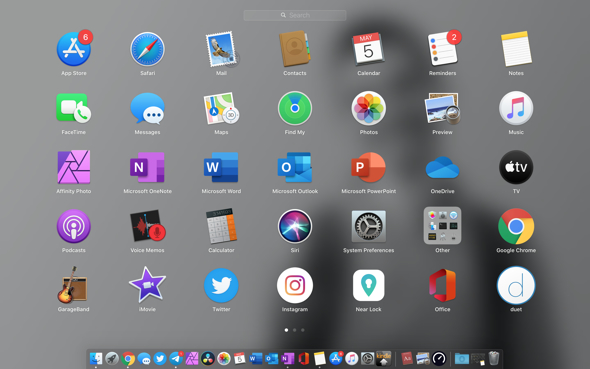
One of the biggest consequences of moving to the new processor is that all of the applications in use are programmed for Intel processors with the x86 architecture. But Apple has used its influence and technical capabilities to solve the problem. Apple has transferred all its programs, including professional ones, to the new processor ARM architecture. It is also working with Microsoft and Adobe, the biggest players in the software market, to move all of their software to run on the new processors. In fact, some Office and Photoshop programs are already working with the new architecture.
And for the rest of the developers, Apple has designed development packages to make the transition as easy as possible. Where the company stated that developers will be able to change their applications to comply with the new system in just a few days. The development package also contains a tool to make the program work with both Intel and Apple processors.
Rosetta 2 and old software
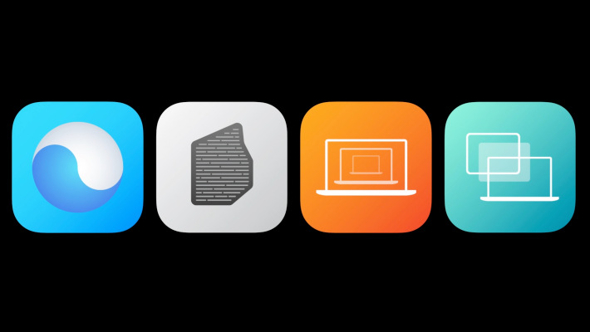
When Apple moved years ago to Intel PowerPC processors, it released a tool called Rosetta that allows it to run old PowerPC programs.
Now Apple has made a second version, which will allow devices that run on its own processors to run programs designated for Intel processors.
By the way, some in the tech world wished to add an Apple Rosetta 2 to the iPad so that it could run Mac programs. But I don't think this will happen soon. If Apple wanted the iPad to run Mac programs without modification, it would have been better to issue its own applications that were specifically designed for the A12Z processor and similar to the iPad Pro. She didn't need Rosetta or any simulations.
But Apple has not made any similar advertisements. This shows that the main problem for Apple is the interface for applications that are not customized for touch. And not just if it can work.
What about old Macs?
![]()
If you are a current Mac user, you should be concerned. Will support be dropped from your device? Will the programs not work in the future? Do i fear
The answer is no ... but yes. Apple's new development tools allow developers to create applications that run on old and new processors. The company also announced that it still had Macs powered by Intel processors in the near future. So it is certain that Apple will continue to update the system for years. And with him the apps too.
However, it is expected that some applications, especially in the future, will work better with devices containing an Apple processor. Naturally, these devices will have special features that Intel processors will not get.
Don't buy a MacBook or an iMac now!
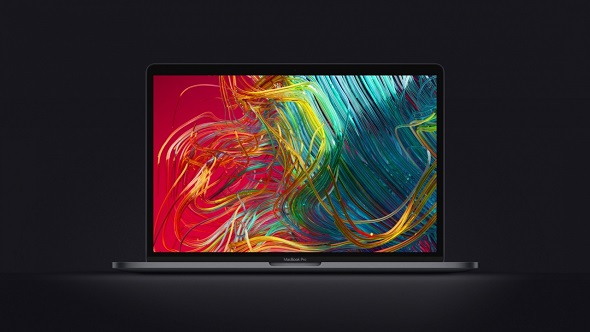
If you consulted me a few weeks ago to buy a Mac, I would have given you several options. I was even thinking of writing a buying guide but decided to postpone it.
Apple announced that the transition is expected to take place in just two years, which is very little time compared to even the oldest projections. Therefore, Apple is expected to release several devices. Also based on the rumors, it appears that Apple is planning even the MacBook Pro and iMac to use the new processors.
And the first device with these processors (most likely it will be a small MacBook) will be released in only months! End of this year. So, be patient, dear brother, especially since Apple devices are not cheap. And you may regret seeing new devices come very soon after your purchase, but they are completely silent or have more speed and more features.
But if you must buy a device now, no harm, but I know that it will not last for more than four years and you will find yourself forced to buy a new Apple device with the new processor, as the old hardware support will end.
In the end
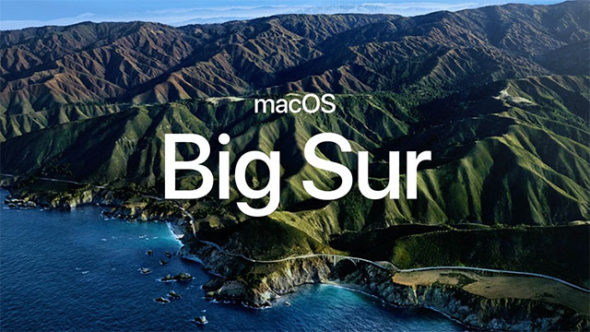
We are very excited about the future. And for macOS 11 with processor updates. Finally we have an update that can change a lot of the fundamental things in the desktop field. And after a stalemate that lasted for a long time ...
Sources:
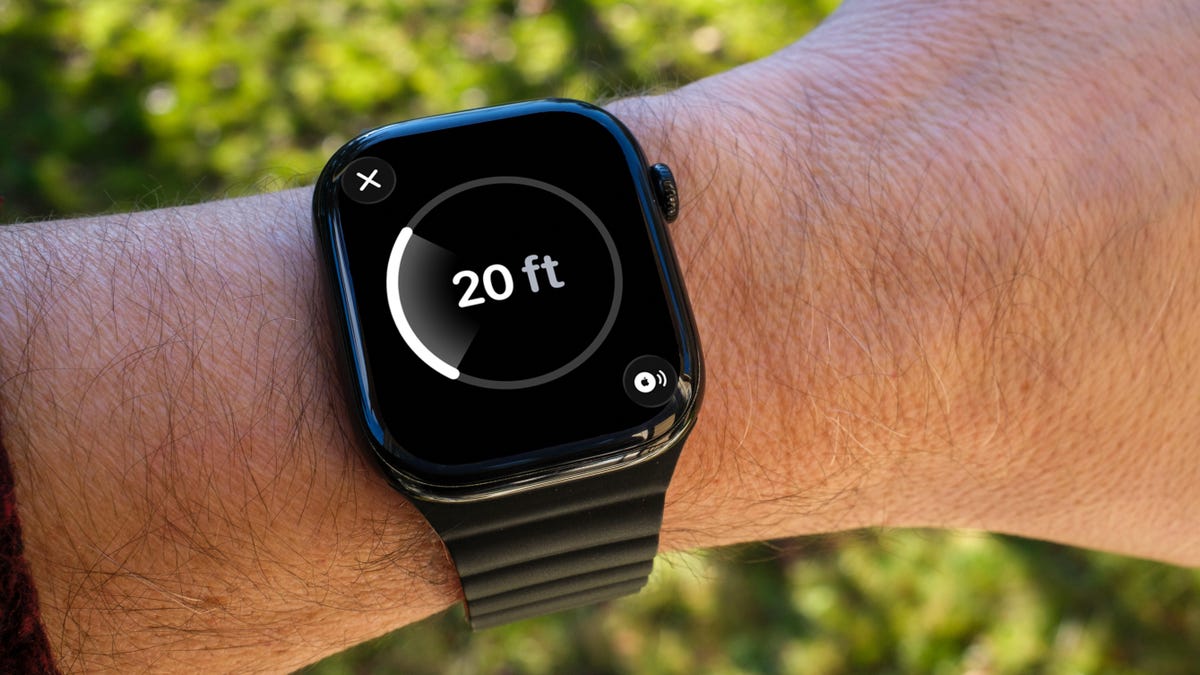
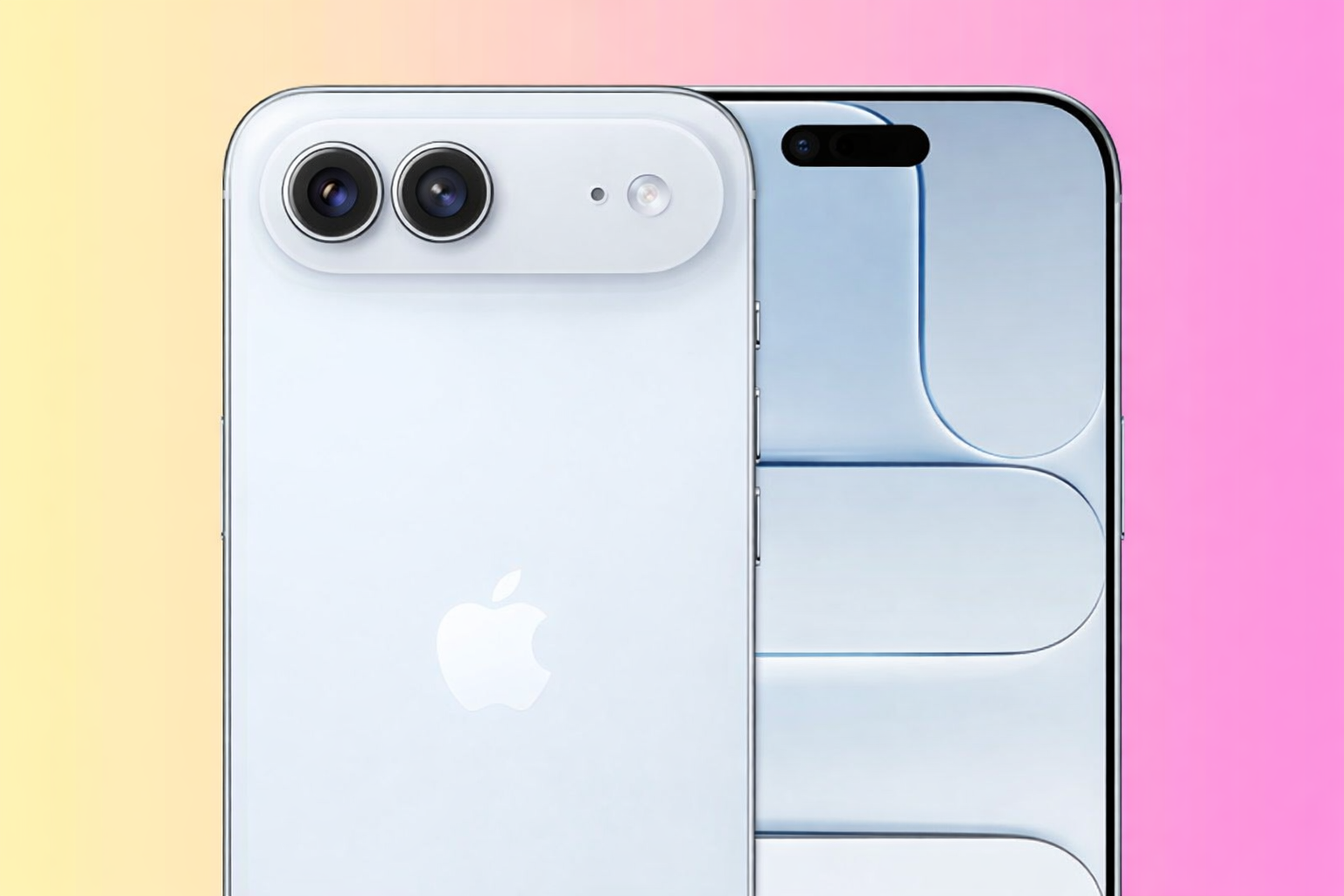
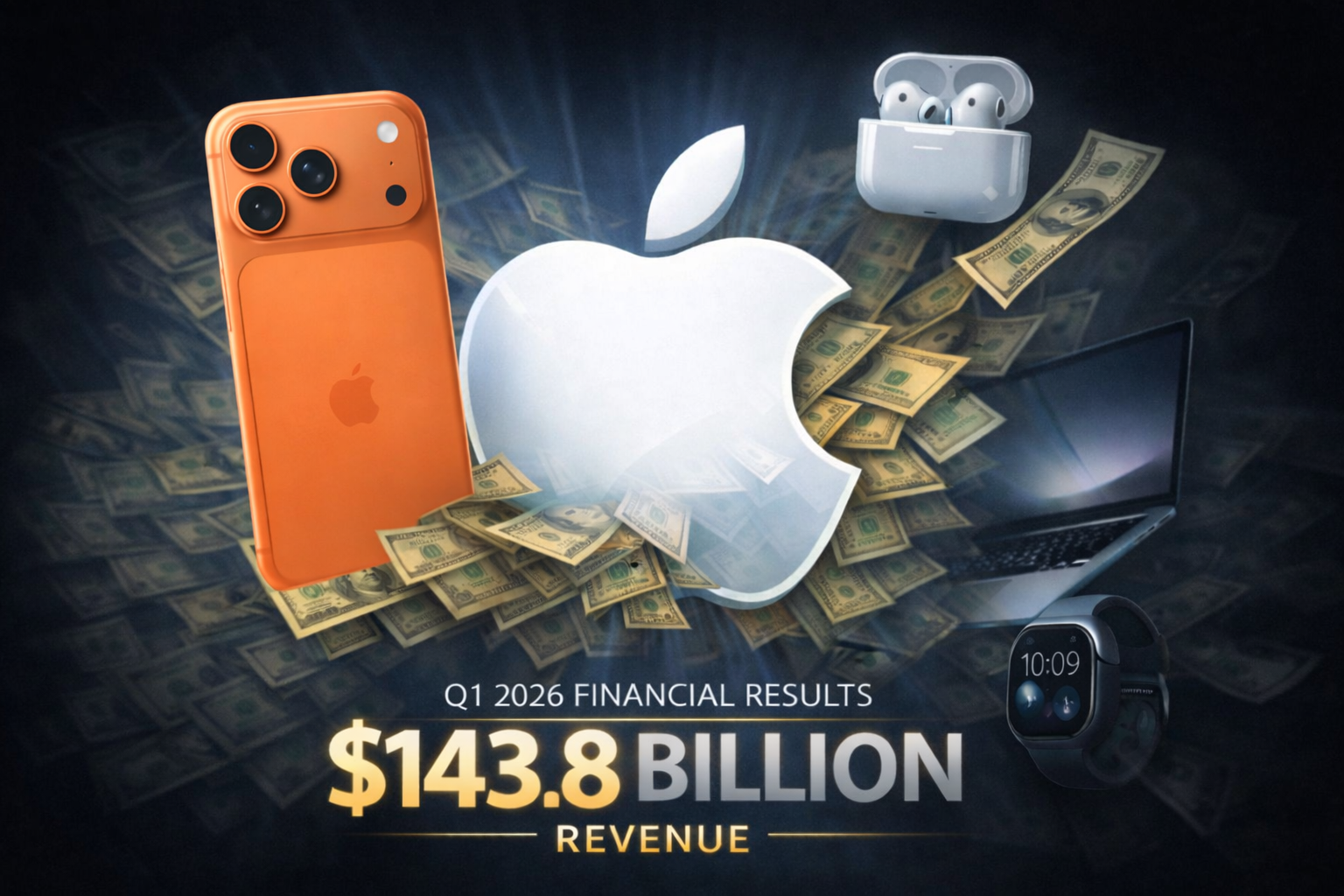
14 comment